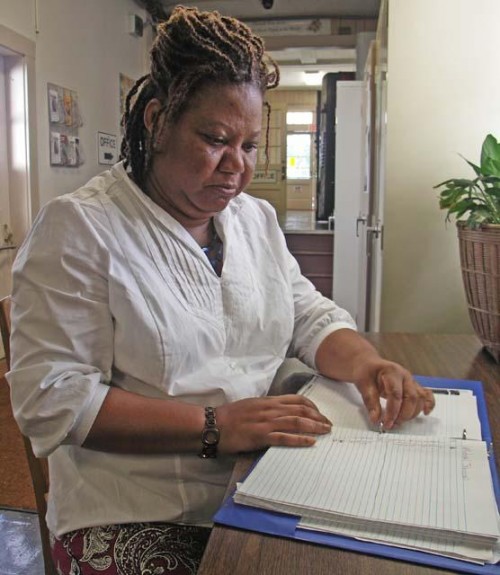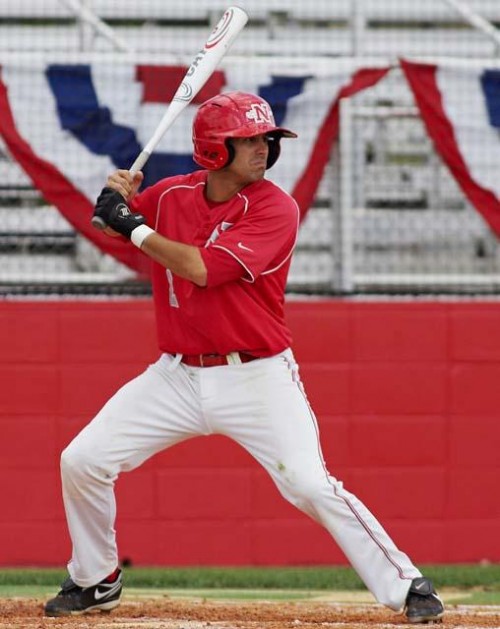
Area adult education offers new opportunities
May 16, 2011
Nicholls’ Jaramillo credits new plate approach for big success
May 18, 2011Palmer Lao, like his fellow seniors at Terrebonne High School, will graduate next week. Palmer Lao, unlike his graduating classmates, is 14 years old.
For Palmer, Terrebonne High represented a one-year commitment in his chase for a diploma. Three years removed from Mulberry Elementary, Palmer has one summer to prepare before he embarks on his college education.
Although his expected double major in music and engineering might hint to the contrary, the early graduate said he intends to pace himself at the next level.
“I think I’m going to go for the normal workload, because I’m kind of scared right now about the pace,” he said. “Everybody says it’s like a really big jump and my sister writes like 20-page lab reports, single spaced, and it took me like a month to write a 10-page paper, double spaced … with a really big font.”
Palmer’s 3.87 cumulative GPA ranks him 13th in his graduating class of 282. He began taking the ACT college enrollment exam three years ago, and after four tries, he said, his highest composite score is a 31.
During his senior year at Terrebonne High, his first at high school, Palmer was concurrently enrolled in online correspondence courses, as well as psychology and calculus classes at Nicholls State. Calculus was the only class to present an obstacle for him this year, but it wasn’t in a manner that one might expect.
“I had some trouble in the very beginning,” he said. “I would get all of the answers right, but [my professor] wouldn’t understand my work, so I just have to write it out more clearly. My grade has improved since then.”
Palmer’s intellect expands beyond the realm of books and tests. As an alto saxophonist and oboist, he has excelled in the musical arena and garnered invitations to prestigious programs, including the Interlochen Center for the Arts summer camp in Michigan.
“He’s done All-State two years and both years on oboe, he was the top oboist in the state,” said Vaughn Luquette, Palmer’s band instructor. “That speaks volumes for itself. I think he’s probably the youngest person to ever do that. What else do you say? Those sorts of things just don’t happen.”
Pam Mayet, Palmer’s guidance counselor, speaks of Palmer with reverence, impressed with his accomplishments, the timeline in which he achieved his goals and how he has done it with such little sleep.
“He really kept up with a lot of stuff. He came in and did scholarships just like every other senior,” she said. “Deadlines, he was right on the deadline for some things, but he had things done. He’s pretty organized, and I think that’s what keeps him doing the things he needs to do.
“He pushed himself so hard, that I don’t know how [he] got through this year. He doesn’t sleep.”
In his free time, “You have free time?” Mayet asked, almost flabbergasted, Palmer said he likes to read and develop computer programs “to challenge myself.” After a few moments of consideration, he said his favorite book is John Grisham’s “The Client.”
Palmer, who is not even old enough to drive a car with a parent in the passenger seat, said he plans to attend an early enrollment school at Clarkson University, a self-described independent technological university in Potsdam, N.Y. He said he would not be joined in New York by a relative, but Clarkson does offer a supervisor for its early enrollees.
“I think they have really good research, and it’s really unique,” Palmer said of his all-but-finalized decision to attend Clarkson. “When I was there, I saw some students building a canoe out of concrete. They do that every year, and they have to make it float. I also saw some other students in mechanical engineering making a gas-powered car almost purely electrical powered.”
Palmer’s mother, Maricar Ong-Lao, said he was awarded the top scholarship at Clarkson, a $15,000 per year award. She added that she has no qualms sending her child across country to further his education, citing his maturity.
“I think he will blend in because he chooses to be with older kids,” she said. “In the symphonies, his friends are all seniors.”
In a time where bullying is a national issue on the high-school level, Palmer’s accelerated advancement and ability to fluently use the word “esoteric” in conversation might paint a target on his back. But that’s not the case, according to those involved at the school.
“They’ve pretty much got Palmer figured out, as much as ‘It’s Palmer,'” Luquette said. “I don’t want to sound demeaning or anything, but they pretty much come from Houma Junior High, so they were kind of acclimated to what Palmer was doing already. If they don’t know, they think they know.”
“When he’s in class, he’s treated like everybody else,” Mayet added. “He’s peaking at a different age than most kids, but when he’s sitting in the desk like everybody else, he’s just part of the classroom.”
Although he won’t deliver a keynote address as the school’s valedictorian, Palmer has left in his wake more opportunities for his peers than were available for himself when he enrolled at Houma Junior High three years ago.
His guidance counselor calls Palmer a “trailblazer,” crediting him, and his sister, April, with the parish’s deletion of a that’s-just-the-way-it-is rule that prevented accelerated education and early graduation.
Maricar Ong-Lao, an anesthesiologist in Houma, said her children exhibited their potential before they were 3 years old. April, the elder child, began opening letters from universities, which opened her eyes to opportunities.
She needed geometry to be formally accepted, and algebra was a pre-requisite to the class. Instead of waiting an extra year, she enrolled in an online correspondence course, passed it and geometry and enrolled at Mary Baldwin College in Virginia at the age of 15.
Maricar said the school board was resistant to accepting the correspondence course, but an ally on the state level assured her it was the right process and it would have to be accepted.
April is set to graduate this summer at 19 years old. She won first place in an international undergraduate competition in systems biology.
Having been through the process, having been rebuffed in her attempt to get the school system to allow her children to skip grades, Maricar Ong-Lao was skeptical when Palmer decided, as he was set to begin at Houma Junior High, that he wanted to test out of required classes and accelerate his education.
“Palmer is crazy,” his mom said. “He had this idea, ‘What if I can go skip the grades as I want and test out and all that,’ and he was so persistent. It kind of stressed me out because I know it cannot be done. So he’s injecting that, and I started investigating.”
Maricar learned that it could be done. She read “about 100 textbooks” on the fundamentals of education and armed herself with the lingo to complement her knowledge, as she acted on the advice of her ally on the state level.
Maricar said she was met with condescension from local officials as she tried to circumvent the archaic year-by-year educational process. But it wasn’t the first time.
She had been through the process with April and knew that it was a difficult, if not impossible, task.
She had also been through the process with Palmer, who, as a kindergartener, told his mother that he wanted out of school. He wasn’t challenged and felt that it was useless. Fearing that he would develop a hatred for school, particularly math and science, Maricar threatened to withdraw him from Mulberry.
It was then that his acceleration started. Palmer was placed in a first-grade classroom, and his paperwork was handled “underground,” correlating with the grade he was aged to complete.
This proved to be a hiccup when his time came to enroll in junior high, but the Laos’ persistence resulted in Palmer being able to test into Houma Junior High.
Once there, it was his independent zeal, combined with an afforded opportunity, that led to the revamping of old principles, through correspondence courses and accelerated opportunities, he had 17.5 Carnegie units after his eighth-grade year.
“We both want the challenge, because without it, we’d just be rotting in seventh grade math, for an entire hour and a half, every day,” Palmer said of he and his sibling.
The parish no longer allows age to inhibit progress. In total, three students are graduating early from Terrebonne High this year – Palmer and two other students, who were originally scheduled to graduate in 2012.
“Next year, I’m thinking there’s going to be quite a bit more, because I’ve already talked to some Houma Junior High students who are already asking me if they can graduate,” Mayet said. “I think [Palmer] has opened up the floodgates.”
Maricar said she was happy to play a role in the breakthrough.
“It’s so fulfilling because I feel like my efforts did not go to waste and it didn’t stop with my own child,” she said. “I know that there are more gifted kids out there. It’s just that, as a parent, they just don’t know what is there to fight for.
“It’s like what happened to me with my first child. If she did not get invited to go to college, she would be stuck in 12th grade. Palmer is just different, because he gives me a hard time.”












